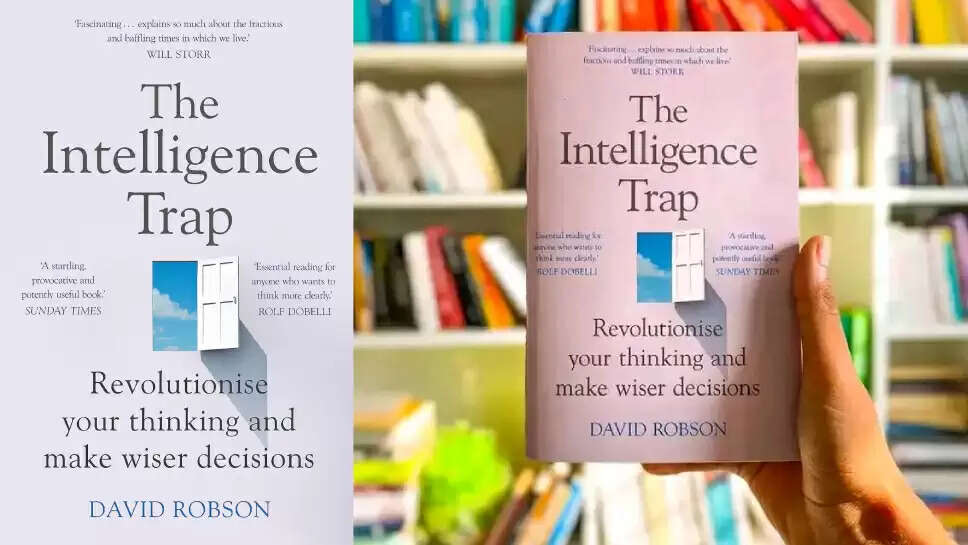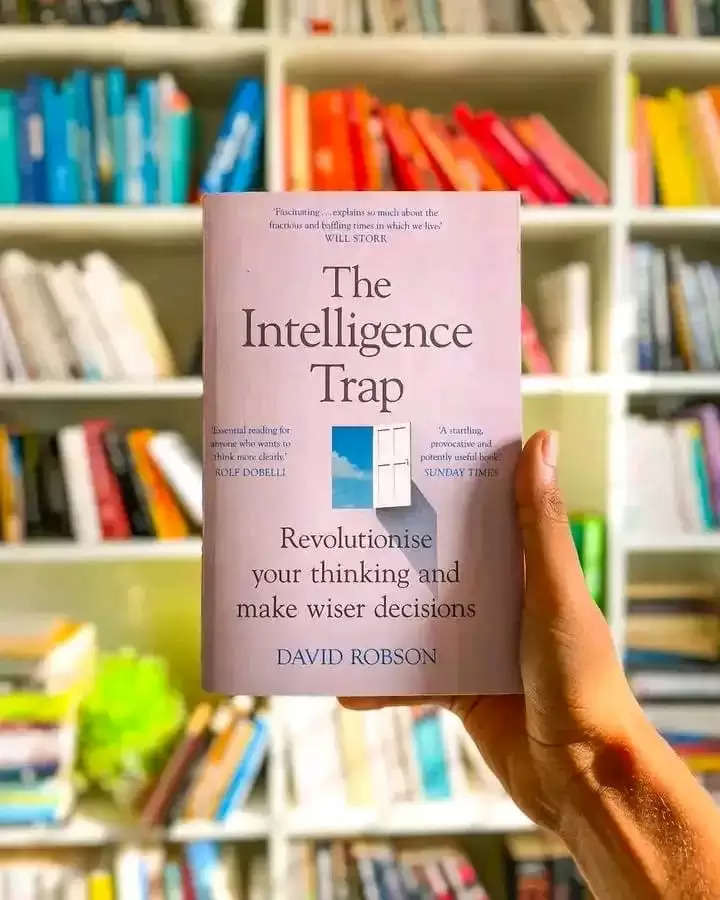7 Key Lessons from The Intelligence Trap by David Robson

"The Intelligence Trap," a book by David Robson, is an interesting look at how our ideas about intelligence can be wrong sometimes. Here are seven important things I learnt from the book that show why having a high IQ doesn't always mean you'll make smart choices or be successful.
1. Intelligence Can Be a Double-Edged Sword: One of the most important things Robson says is that being smart isn't always the key to success. As it turns out, having a high IQ can sometimes be bad. It could make people too sure of themselves, where they think they are always right and ignore information that says otherwise. This kind of overconfidence can lead to confirmation bias, which is when people only look for evidence that backs up what they already believe and ignore evidence that goes against what they think. Also, people who are very smart might miss easier, more useful ways to solve problems because they are too focused on complicated ideas or small details that aren't really useful. To sum up, being smart is helpful, but it doesn't always mean you'll make the right decisions.
2. Beware the "Intelligence Trap": The book talks about the "Intelligence Trap," which is when people depend too much on their thinking skills and ignore other, more important skills. Even though they are very important, analytical thought often takes precedence over emotional intelligence, creativity, and self-awareness. One important thing that this trap shows is that ability is only one part of the puzzle. We might not be able to make well-rounded choices if we don't balance it with creative thinking and emotional insights. It's not just about how smart you are; it's also about how many skills you have in different areas.
3. Strategic Ignorance: Knowing When Not to Know: Robson also talks about the idea of "strategic ignorance." Even though it seems odd, it can be helpful not to know everything. The idea is that you can make better decisions if you focus on the most important things and purposely ignore the rest. Focussing on what really counts is easier when you don't get bogged down by all the data. This often leads to better and more effective results. It's about getting rid of the extraneous stuff and focussing on what's important for success.
4. Embrace Meta-forgetting: There are limits to how much knowledge our brains can hold and process well. Robson talks about the idea of "meta-forgetting," which means letting go of old or useless information on purpose so that you can make room for newer and more important information. This method involves setting priorities and getting rid of knowledge that is no longer useful instead of trying to remember everything, which can cause cognitive overload. It's like clearing out your mind to make sure that only the most useful knowledge is at the top of your mind.
5. The Power of Functional Stupidity: The idea of "functional stupidity" might seem strange at first, but Robson does a good job of explaining it. Simplifying a job or acting a little "dumb" on purpose can be helpful at times. You can often get better results if you stick to basic ideas and don't make things too complicated. This method can help avoid analysis paralysis, which happens when you have too much knowledge or too many choices and can't decide what to do. Putting it into practice means knowing when to keep things simple and direct, which can lead to better and more useful answers.
6. Learn from History's Bright Mistakes: Robson uses historical examples to illustrate the pitfalls of relying too much on intelligence alone. One poignant example is the Challenger space shuttle disaster. Despite the high intelligence and technical expertise of the individuals involved, a series of poor decisions and missed warnings led to a tragic outcome. This example serves as a powerful reminder that even the most intelligent individuals and organizations can fall into the Intelligence Trap if they aren’t careful. It underscores the importance of integrating intelligence with other skills and awareness to avoid making costly mistakes.
7. Cultivate a Growth Mindset: Finally, Robson stresses how important it is to have a growth attitude. This means you should be able to try new things, listen to others, and change if you learn something new. If you have a growth mindset, you don't think of intelligence as a fixed trait. Instead, you see learning and personal growth as ongoing processes. Getting out of your comfort zone and being ready to learn from your mistakes can help you keep getting better and make better decisions and solve problems.
Put simply, intelligence isn't everything when it comes to achievement, according to The Intelligence Trap. Making better decisions in the face of complexity requires an awareness of our own cognitive limitations as well as the integration of other vital qualities, such as emotional intelligence, creativity, and strategic thinking. Robson's observations serve as a reminder that a more comprehensive view of intelligence can improve results in one's personal and professional life.

Book: https://amzn.to/3X0pQrs
--
-- Class Dismissed --
You Might Also Like: 7 Transformative Lessons from Napoleon Hill's "How to Raise Your Own Salary"
